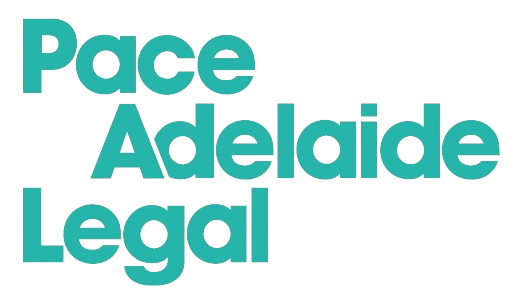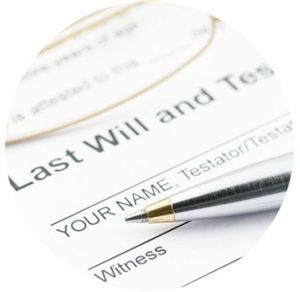‘Paperless’ Probate Applications 2019 – Do I still need a Lawyer to Assist?
Since 28 November 2018, the Courts Administration Authority of South Australia has transitioned probate registry lodgements to its CourtSA digital platform. But does a digital platform necessarily mean a lawyer-free platform? While the process has certainly become easier to navigate, the potential for estate disputes to arise unfortunately remains the same.
This blog will consider issues surrounding the probate process in South Australia, for both self-represented parties and lawyers alike.
What are Probate, Letters of Administration and Letters of Administration with Will Annexed?
To administer the Will of a deceased person, the Court needs to determine whether the Will is valid. This process is known as probate.
Fun fact: the term ‘probate’ comes from the Latin probatum meaning ‘something proved.’
The deceased may have had many Wills, or various documents that may have outlined how they wished for their estate to be distributed after their death. Through probate, the Court determines the most recent, valid Will. Once the Court has issued a grant of probate, the executor – or administrator – of a Will may then obtain legal access to the deceased’s assets for distribution amongst beneficiaries, in accordance with the Will.
When the deceased has not made a Will, or their Will is not valid, the court may issue a grant for Letters of Administration, naming an executor to handle the distribution of the deceased’s estate.
When the deceased has left a valid Will but the named executor is no longer around, or is unwilling or unable to organise the probate application, the Court may issue a grant for Letters of Administration with Will Annexed. Generally, any beneficiary under the Will could make this application.
Why do I need Probate?
You may be asking yourself, “Uncle Bob only had a house, $50,000 and an antique can collection and he left it all to me. Why do I need to go through probate?” Unless the amount of the deceased’s estate held by a financial institution is minimal, and the deceased didn’t hold any real estate, an executor of a Will is always going to require a grant of probate. Organisations such as banks and insurers usually will refuse to release money until a valid grant is produced.
Do I still need a lawyer for Probate?
In short, yes. Digitalisation offers many advantages by centralising documents, reducing processing times, and minimizing paperwork, but it does not reduce the complexity of the deceased’s estate or your family affairs. For example, the deceased may have had numerous bank accounts, investments, share portfolios, properties and liabilities. They may have stipulated certain promises in their written Will that conflict with the promises they made in conversation. They may have had a large and complex family, increasing the possibility of claimants contesting the Will. It is important, in these types of complex circumstances, that the application for probate is thorough and accurate so as to avoid future estate disputes.
That said, self-represented parties now have more potential than ever in South Australia to make a successful probate application. The process for legal practitioners and self-represented parties is almost identical, except for a requirement for self-represented litigants to appear in person with the original Will and personal identification at the Probate Registry on Victoria Square.
Does this mean the Probate Process will be quicker?
In theory, yes. The Courts Administration Authority estimates that the digital overhaul will reduce backlogs and processing times. A major problem with the old system was the number of requisitions and application rejections made on the basis of filing and input errors. A guided, digital system is expected to streamline the application process. Early reports from practitioners suggests that the turnaround time has reduced from several months to between 1 and 6 weeks!
Of course, digitalisation brings with it different potential hindrances and vulnerabilities: hacking; data phishing; site traffic overloading; server data loss. Cutting processing times from months to weeks with a paperless system will only be successful if the system is reliably underpinned and safe.
Risks in the Digital Age
In September 2018, the State Government was forced to shut down digital guest access to the Land Titles Registry after over 1 million South Australian property records were downloaded by a single anonymous person. Cyber security experts suggested that while the data exposed was mostly harmless on its own, when used in conjunction with other sources of personal information it could create a very accurate profile of someone’s economic status, including their debt.
With the digitalisation of probate comes a new, digital method for the public to view Wills online. The previous system required the payment of a $21.20 fee accompanied by a paper form. Security experts have raised concerns that the new system, without the barrier of paperwork or fees, is susceptible to the same vulnerabilities as the Land Titles Registry. Publicly viewable Wills do not give complete insights into assets and liabilities, but do contain complete lists of beneficiaries, many of whom may be grieving, emotionally vulnerable and potentially a target for fraud or blackmail.
Of course, with every risk comes great reward. Free and transparent information assists people with legitimate vested interests in making accurate decisions every day, boosting productivity and the economy.
How much does Probate cost?
In South Australia, for a grant of probate for estates with a value of $200,000 or less the fee is $797, increasing to $1,594 for estates valued between $200,000 and $500,000, and up to $2,125 for estates valued between $500,000 and $1 million.
The Law Society of South Australia notes that while transitioning to a digital platform is a positive step, additional investment, without unfair fee increases, is still required to boost efficiency and increase processing times for grieving South Australians. You can find the complete current South Australian Probate Fees here.
I’m a Lawyer, but I’ve been holidaying in Barbados. What’s changed?
To begin with, the basic probate lodgement process is now entirely completed via digital ‘CourtSA Forms.’ These are forms dealing with originating process, such as the ‘CourtSA Grant Application Form’ which replaces ‘Form 36 – Grant.’
When certain CourtSA Forms are completed, they generate ‘CourtSA Generated Documents.’ For example, a ‘CourtSA Grant’ is generated by completing the ‘CourtSA Grant Application Form.’
Only forms dealing with court proceedings, such as Affidavits in support of a Will, are left without change.
The application process is outlined on the Courts Administration Authority site here. In summary:
- Check that you have a Will, complete details of the deceased’s assets and liabilities, a death certificate, and a credit card for the filing fee;
- An executor’s oath is no longer required for probate, but a signed and witnessed administrator’s oath is still required to be uploaded for Letters of Administration with the Will Annexed and Letters of Administration applications;
- Login to CourtSA using a registered account;
- Complete and lodge the CourtSA Grant Application, checking for spelling and grammatical errors;
- Lodge the original Will in person (necessary if you’re a self-represented litigant) or by registered post with the Probate Registry; and
- A draft grant will be issued and you will be notified once the official digital grant has been issued.
Your client will then be able to download digital copies of the grant, which will require certification before being presented to financial institutions by an authorised person.
If you require any further information in relation to the probate process, we invite you to contact our probate lawyers at Adelaide Legal. We’d be delighted to assist you from start to finish.

